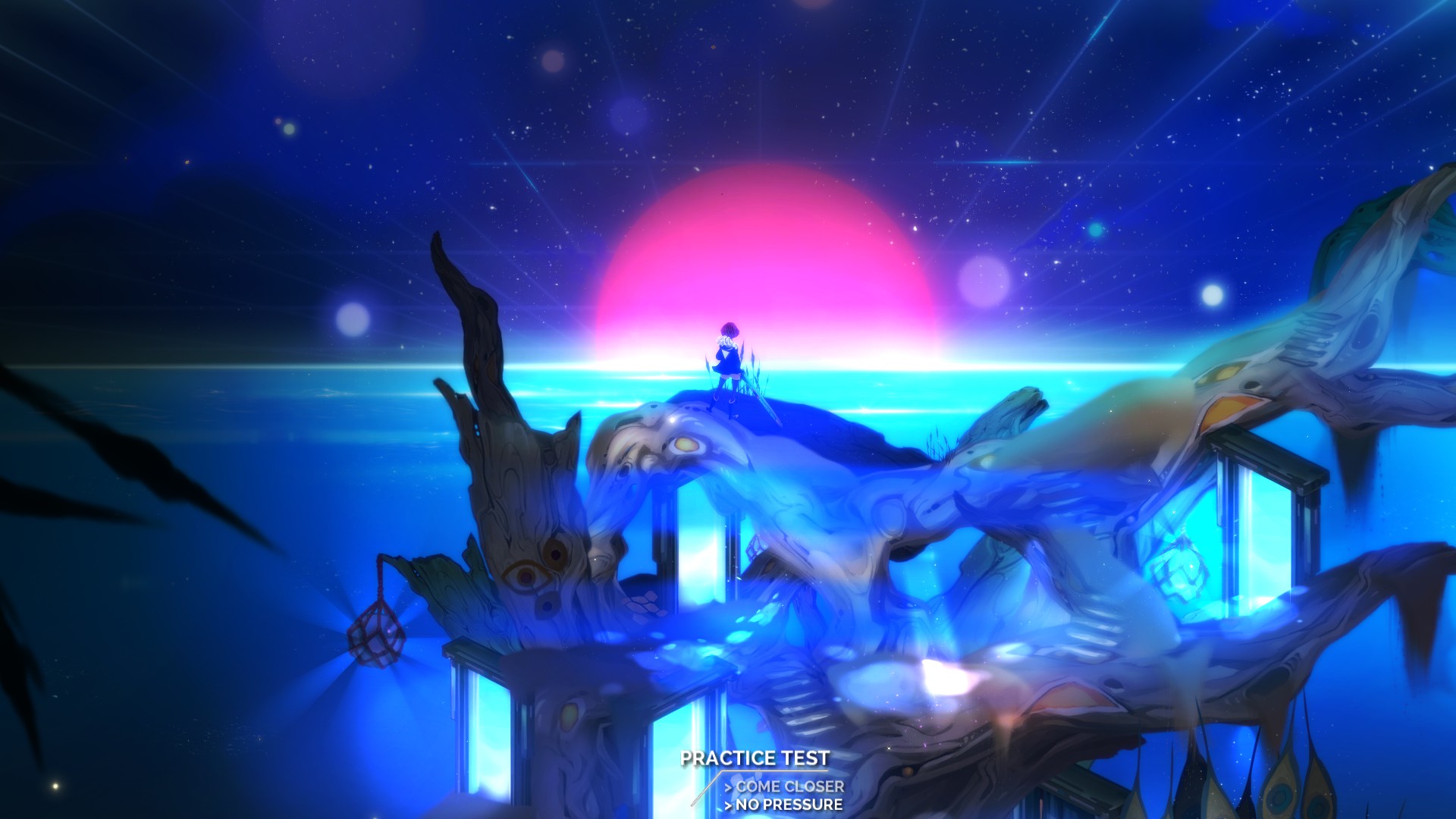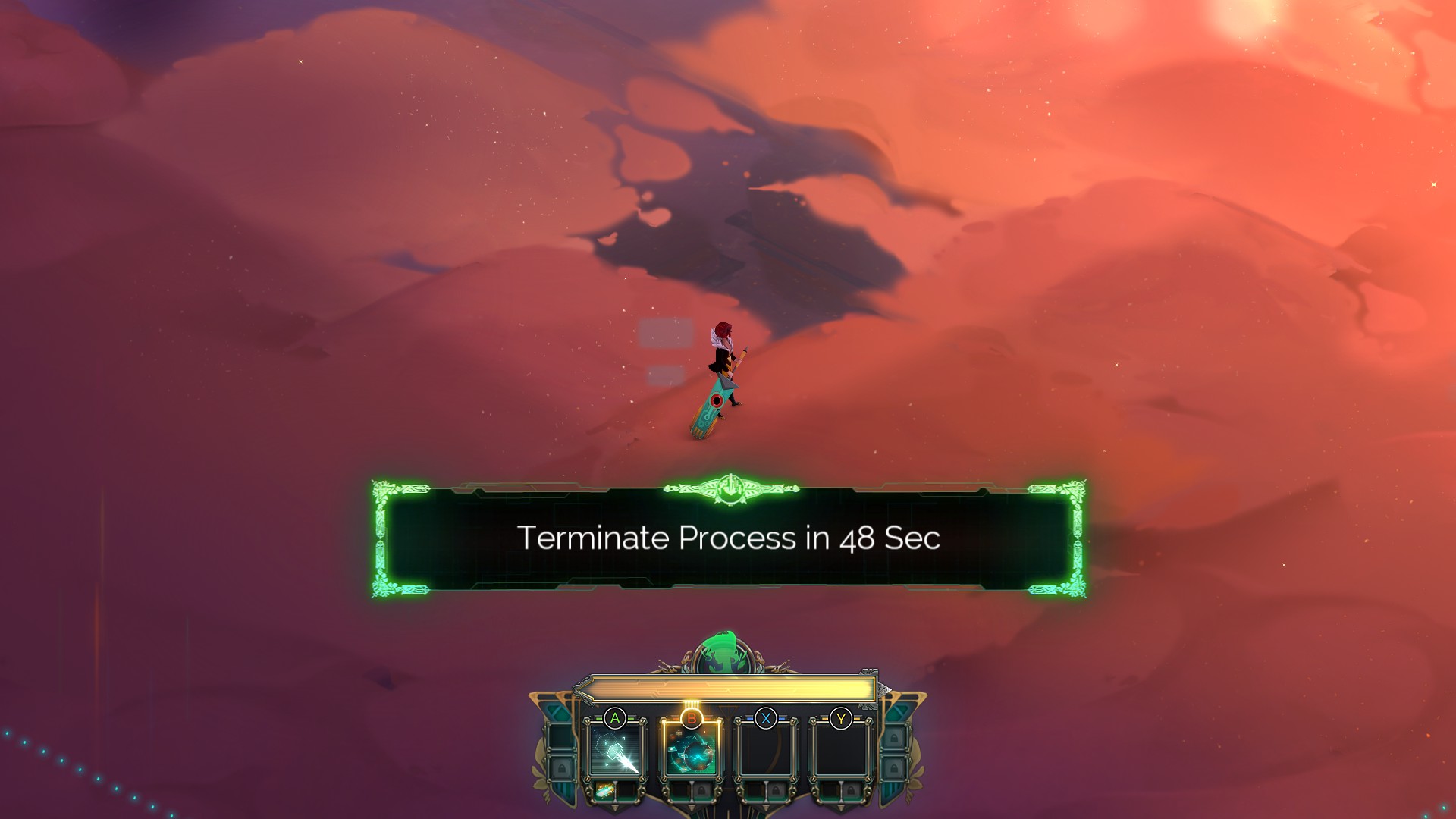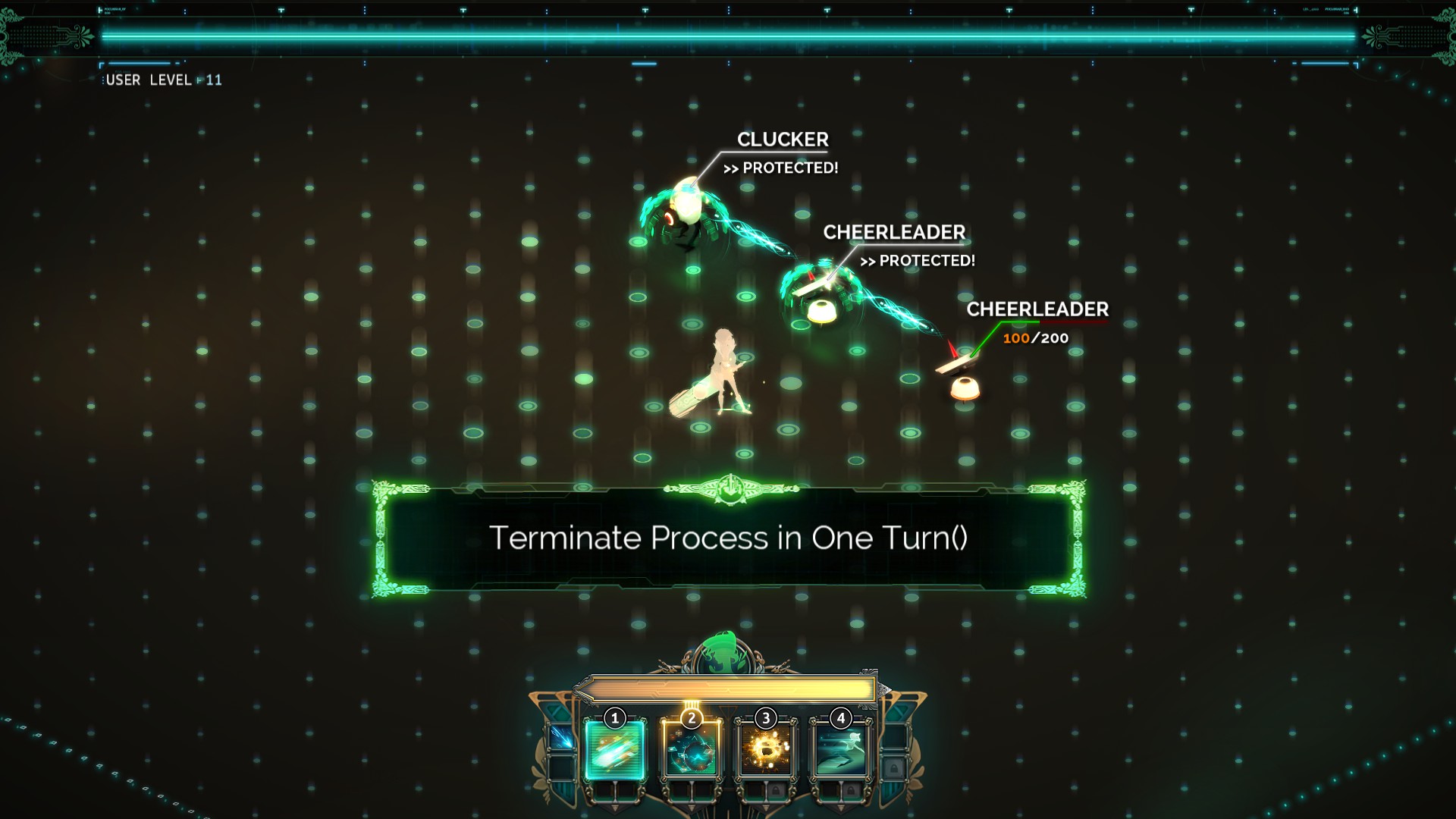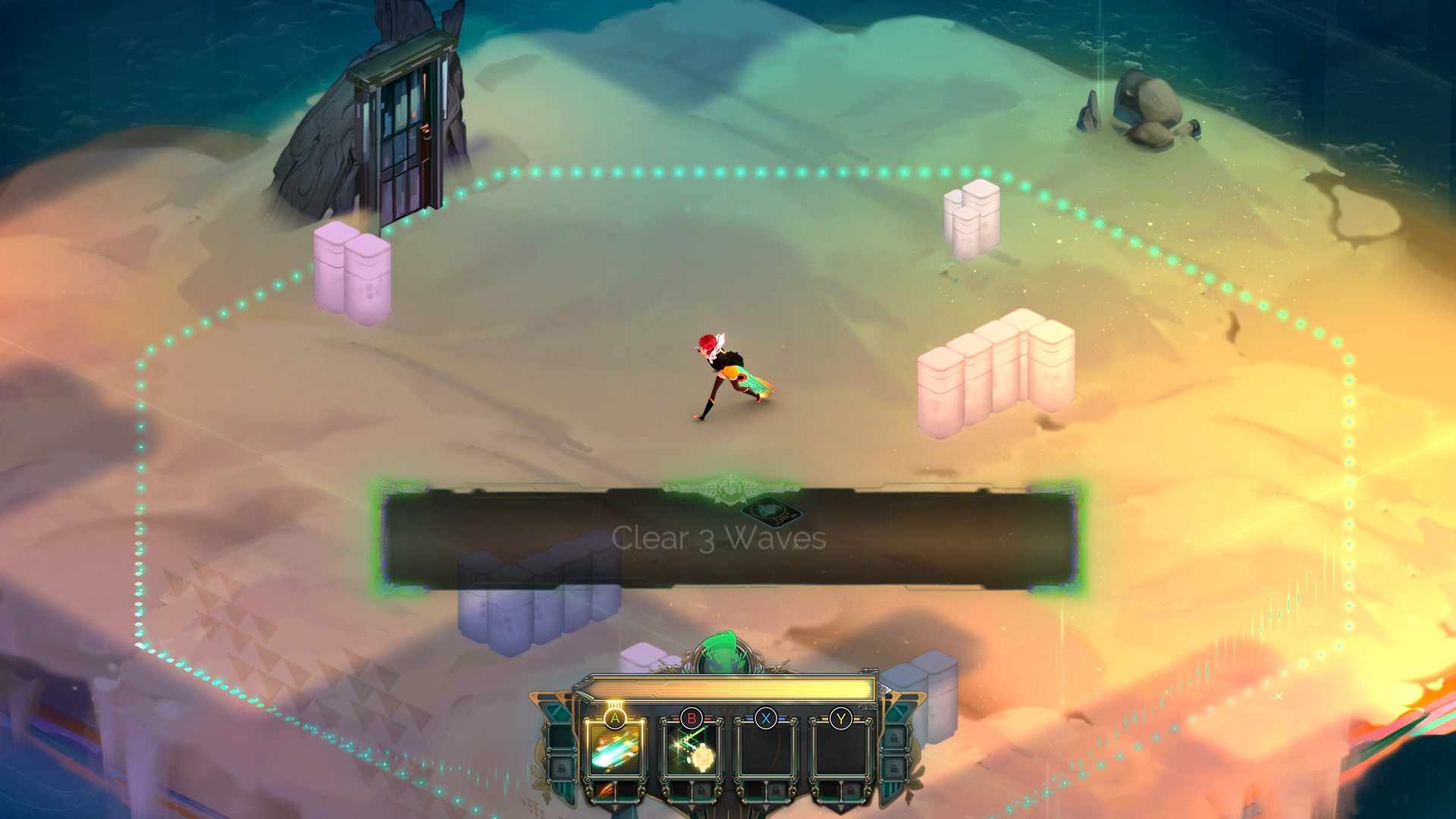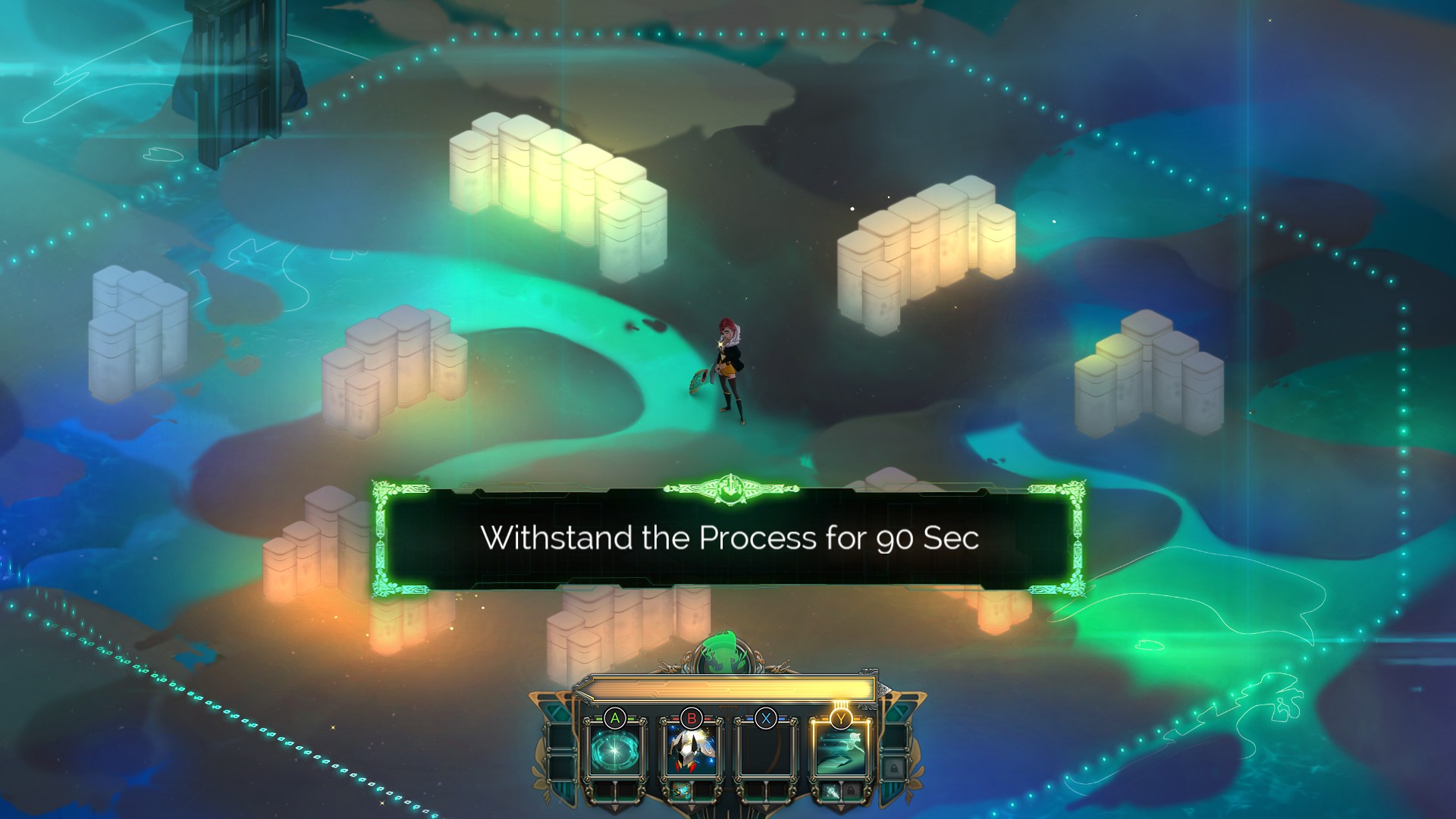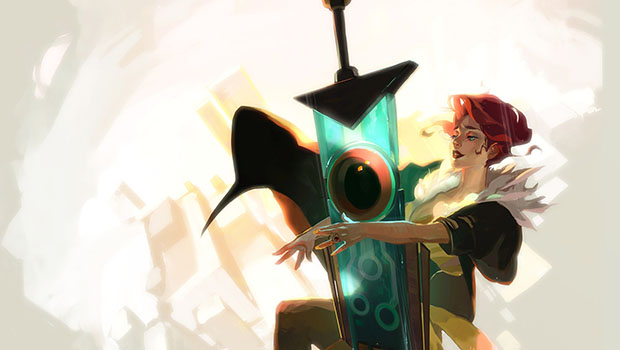GamesRadar+ Verdict
Pros
- +
Incredible art style
- +
Combat is rewarding and unique
- +
Huge amount of customization in the skills
Cons
- -
Cloudbank itself isn't all that compelling
- -
Few memorable moments
- -
The narrative feels like it's lacking something to tie it all together
Why you can trust GamesRadar+
Voiceless and dressed to kill, Red stands over a corpse. "Go on," the green and gold sword whispers, sticking out of the the body at her feet. "Pull." And with a tug, you're introduced to the Transistor, a powerful weapon with a voice that guides you through the stylish, robot-infested city of Cloudbank. It's a futuristic world where the streets shine with electricity and computer terminals every few hundred feet let you vote on the weather. It's these two elements--the sword and the city--that represent the highs and lows of Transistor, a game that always feels a moment away from brilliance.
Cloudbank is under siege by the Process, a malicious group of cool-looking robotic enemies that appear to have come off the same assembly line as GLaDOS. Led by the mysterious Camerata, the AI is taking apart the city, and Red is the only one in their way. It's a tall order for the heroine, who has more experience singing into a microphone than wielding a weapon, but she's not alone--in her hands is a talkative blade that looks like a hybrid USB key/Buster Sword, giving her the power to face them head-on. It's a complex tale and a curious world, but one that's improved greatly by the voice of her blade.
Like the narrator in Supergiant's last game, Bastion, the Transistor's words follow you everywhere, responding to your actions and guiding you along the way. Red might be the hero of Transistor, but she's flat compared to the voice emanating from your sword. Go the wrong way and he'll pipe up, letting you know there's nothing there for you; look at a poster and the wall and he'll give you its history. You'll learn about both characters by the end of the six-hour campaign and though you'll like them both, you'll remember the voice in the sword for much longer.
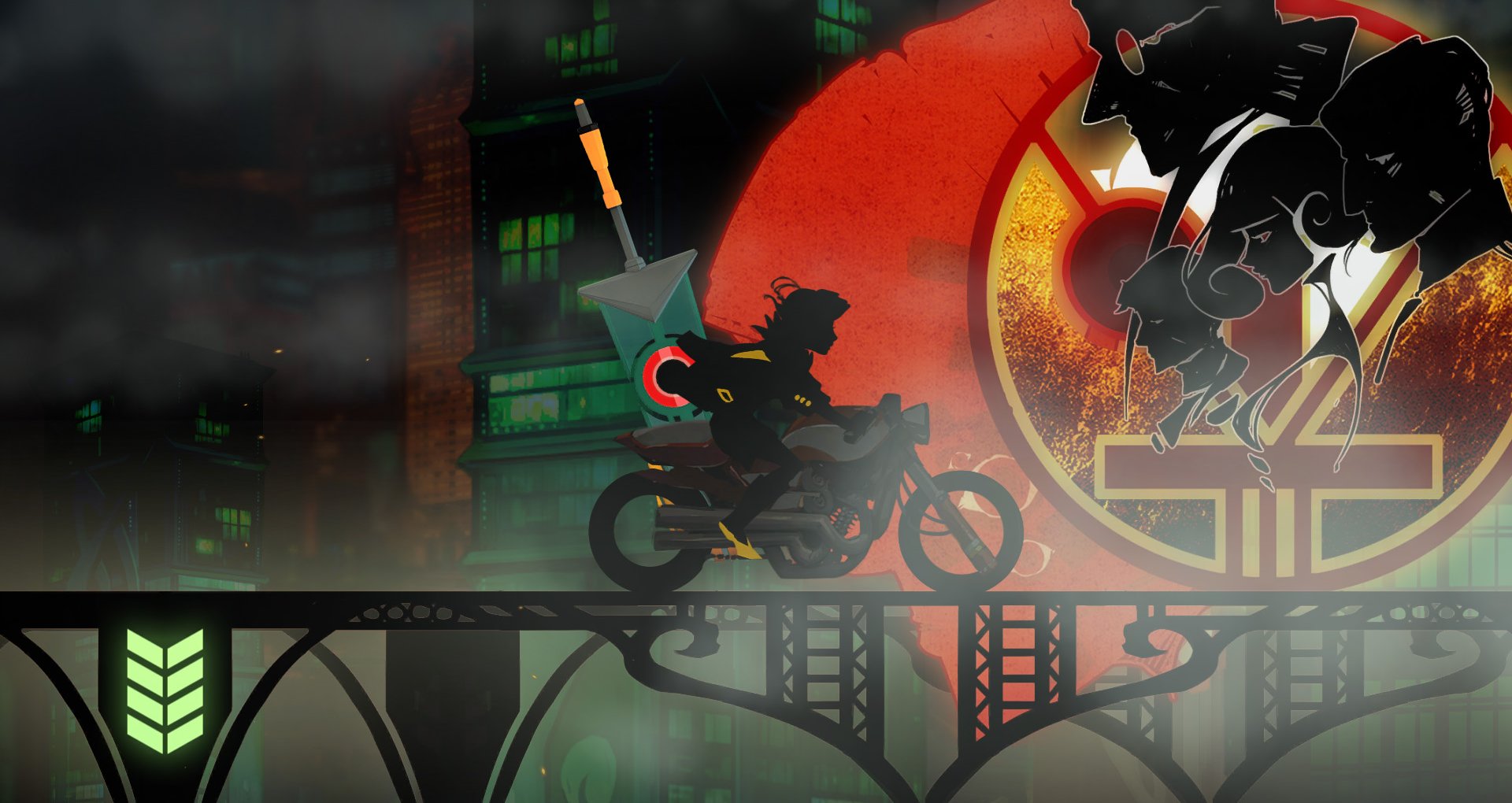
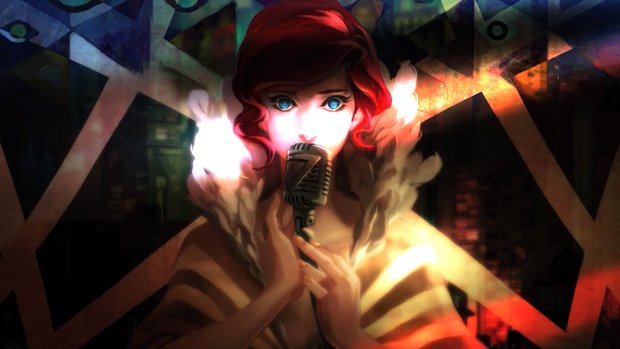
If you hold the left bumper on the controller, Red stops what she's doing to hum along to the game's soundtrack. There's a dedicated hum button. All it does is hum. A spotlight shines from the sky, everything gets saturated, and she hums. It's totally worthless from a gameplay perspective, but I'll be damned if I didn't do it once every few minutes anyway.
The Transistor provides context for a world so futuristic it sometimes feels alien. Cloudbank is beautiful, with neon lights and a unique aesthetic. Everything from the streets to the buildings are cool and sleek, creating a visual style you haven't seen before. But despite constant reminders that Cloudbank was once a bustling metropolis, it never really feels anything like a city. Its more an assembly of rectangles and empty storefronts. That could be intentional, and there's hints at the sterilized future inspiring a vapid society, but it doesn't help to create a memorable experience. I can't really recall more than one or two locations in the game--they all looked so similar it's hard to differentiate any of it.
As you progress through Cloudbank you'll be assaulted by lore--every skill you pick up is attached to a character, and the more you use it the more you find out about their role in society. The Transistor will regularly dispense information, letting you know how things used to be before the robotic Process started disassembling the city. Red can interact with objects all over the world, learning about their history and meaning, but despite that, it feels strangely hollow. Cloudbank fails to rise above feeling like an assortment of skirmishes separated by stylish hallways.
Gain the skills to pay the bills
Occasionally you'll see a door open up into nothingness. A white light will shine from the wall, and inside you'll find paradise--an untouched island with a hammock, a beach ball, and a number of doors. Each leads to a different test, which rewards you with experience and new musical tracks. But what are these tests? Well…
Need help?
There's obviously a lot more to learn about Transistor's battles, so be sure to swing over to our Transistor combat guide for descriptions of all of the skills and abilities.
Part of this is due to an overload of information, rather than a lack of it. The soundtrack is absolutely killer; a mix of electric rock and melodic vocals that echo in the background--a memory of Red's lost voice. The voiceover is stellar; the sound effects impactful. All the text on the computer terminals? Interesting and cryptic, begging to be analyzed all at once. But these elements are fighting for your attention. Music surges over the voice of Transistor while text appears on screen and lights flash and blink. It's hard to take in everything at once, so, instead, you'll take in none of it. There are so many moving parts in the world that they're often grinding up against each other.
Even so, despite Cloudbank's flaws, Transistor's gameplay is fantastic. That's largely thanks to the Transistor itself, both in Transistor, both in what it says, and what it allows you to do. The magical sword allows Red to gain different abilities, and each one found can be equipped to an Active Slot, an Upgrade Slot, or a Passive Slot, opening up an incredible amount of customization options. Crash, for instance, is a basic melee attack as an Active, but can turn any other ability into a stun if used as an Upgrade--or give Red damage resistance if dropped in a Passive Slot. Other abilities open up even more complex options, letting you turn your basic projectile attack into a bouncing ball of light that pulls enemies towards you. It's an intuitive system that provides an immense amount of customization, and make the battles fantastically varied.
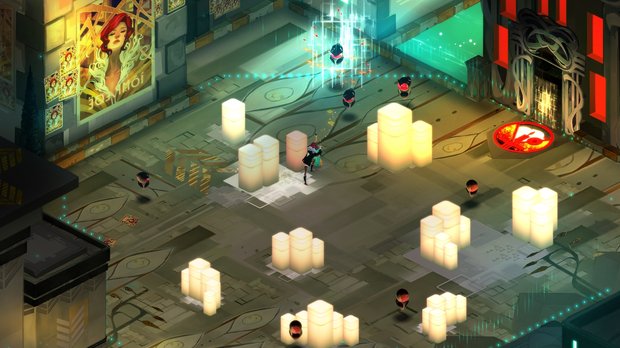
You're able to run around and smash enemies with your sword if you want, but the deeper complexities of combat are found in using Turn, which freezes time and allows Red to queue up attacks. Once you select a series of movements and attacks, you see it all play out at once as Red blasts enemies with Breach to pull them towards her, and then slice them into the sky with area-of-effect attacks. It turns typically mindless hack-and-slash combat into a satisfying, thought-provoking duel of movement and timing. New Game+ is opened after the conclusion, and I'm eager to dig into it, just to spend more time fighting the Process and trying new combinations of skills.
Transistor is cool as hell to look at and damn fun to play, even if you'll spend the whole game waiting for it to become more than the sum of its parts. As I approached the end I couldn't help but feel like I'd missed something that was supposed to evolve Cloudbank, but even if there was a message there, it wasn't one worth getting excited over. Thankfully, Transistor's shortcomings are relatively minor when put up against the awesome aesthetic, slick music, and amazingly inventive gameplay. Those are why you'll be coming back for more--and, believe me, you will be.
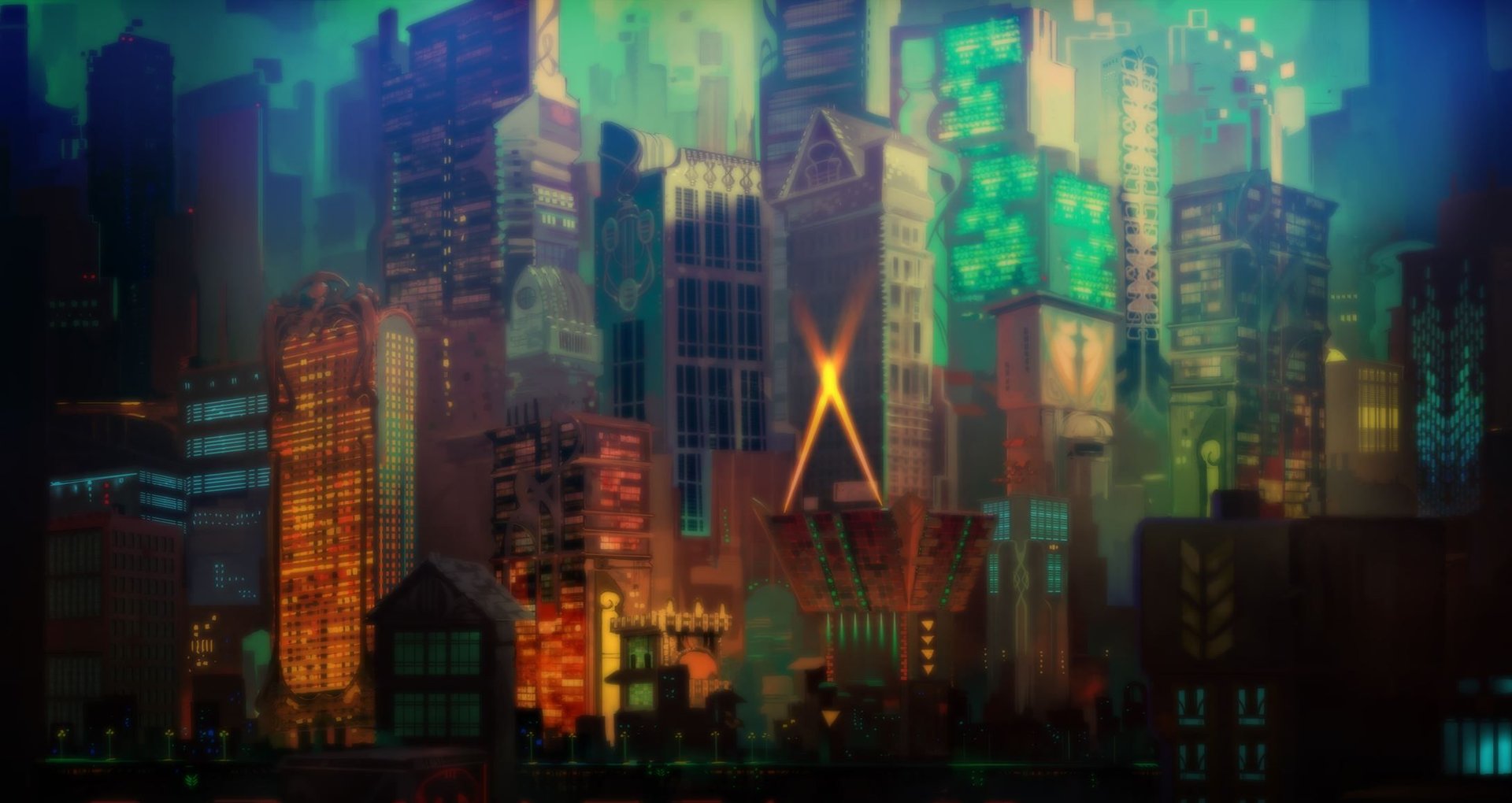
Transistor's clever combat and incredible customization makes for an intensely fun strategy game, but the world and story leave much to be desired. Come for the art and wonderful soundtrack, stay for the ability to freeze time and slash up robots.
This game was reviewed on PlayStation 4.
More info
| Genre | Action RPG |
| Description | Discover the world of Transistor, a sci-fi-themed action RPG from the creators of Bastion. |
| Platform | "PC","PS4" |
| US censor rating | "Teen","Teen" |
| UK censor rating | "","" |
| Release date | 1 January 1970 (US), 1 January 1970 (UK) |
Hollander Cooper was the Lead Features Editor of GamesRadar+ between 2011 and 2014. After that lengthy stint managing GR's editorial calendar he moved behind the curtain and into the video game industry itself, working as social media manager for EA and as a communications lead at Riot Games. Hollander is currently stationed at Apple as an organic social lead for the App Store and Apple Arcade.

